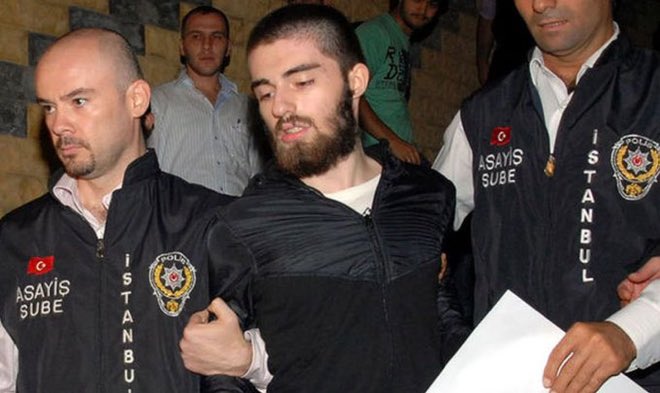The exhumation of Cem Garipoğlu, convicted of murdering 17-year-old Münevver Karabulut in 2009, has revealed no shroud in the grave and an incomplete body, raising further questions about the circumstances of his alleged suicide in 2014, Euronews Turkish edition reported on Friday, citing the Karabulut family lawyer.
The Karabulut family requested the exhumation of Garipoğlu’s body. Garipoğlu, who was serving a 24-year sentence for the murder, reportedly hanged himself in Silivri’s L-type prison, but the Karabulut family was never allowed to view his body, fueling suspicions that he may have faked his death.
The exhumation was carried out on Thursday in the presence of Rezan Epözdemir, the family’s lawyer. After Garipoğlu’s body was removed from the grave, it was placed in a coffin and transported to the Council of Forensic Medicine (ATK) for examination.
The analysis, including a DNA matching that will be conducted using the spinal bone, teeth and hair taken from the grave, is expected to take one day, with results anticipated within the next seven to 10 days, according to Euronews.
Epözdemir stated that no shroud was found during the exhumation, adding that only scattered bones and a skull were discovered in the grave, indicating a lack of body integrity.
“Could the shroud have been lost or deteriorated over 10 years? That doesn’t seem very rational to me. The likelihood that the bones were placed there later is far more plausible in a place where no shroud was found,” the lawyer said.
In comments prior to the exhumation, Epözdemir noted that the examination could lead to one of three possible conclusions: They might conclude that a thorough examination isn’t possible due to the time that has passed; confirm the identity of the deceased as Garipoğlu; or determine that the deceased is not him.
The murder of Münevver Karabulut in March 2009 shocked the country when her decapitated body was discovered in a trash container in Istanbul. Garipoğlu, her then-boyfriend and the son of a prominent businessman, evaded capture for nearly 200 days before turning himself in. His trial, which ended in 2011, drew widespread attention due to the brutal nature of the crime and allegations that his family used their influence to delay justice.
Garipoğlu’s reported suicide in 2014 added another layer of controversy, with rumors circulating that he had bribed officials and escaped from prison. The Karabulut family has maintained their belief that he may still be alive, despite official reports of his death.



